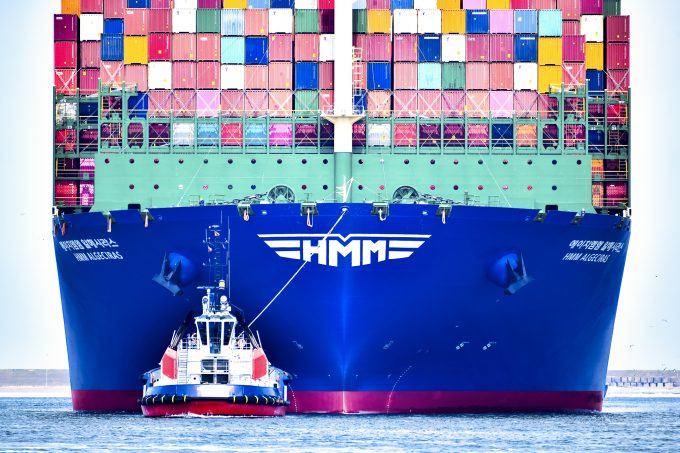HMM takes delivery of its first methanol-powered containership
South Korean shipping line HMM has taken delivery of the HMM Green (above), the first ...

HMM said today it would increase its box ship fleet to 130, with a combined capacity of 1.5m teu, by 2030, from today’s 84-ship fleet of 920,000 teu.
Part of its “mid- to-long-term strategy for 2030”, the boost aims to pre-empt the “rapidly changing environment”, particularly the container shipping alliance shake-up, because THE Alliance – of which HMM is part – will lose Hapag-Lloyd in February to the new Gemini Cooperation with Maersk.
HMM added that it planned to grow its market ...
Volcanic disruption at Anchorage could hit transpacific airfreight operations
Shippers snap up airfreight capacity to US ahead of tariff deadline
New price hikes may slow ocean spot rate slide – but for how long?
Tighter EU import requirements proving 'a challenge' for forwarders
Supply chain delays expected after earthquake hits Myanmar
Forwarders stay cool as US 'liberation day' tariffs threaten 'global trade war'
Looming Trump tariffs will create 'a bureaucratic monster' for Customs

Comment on this article